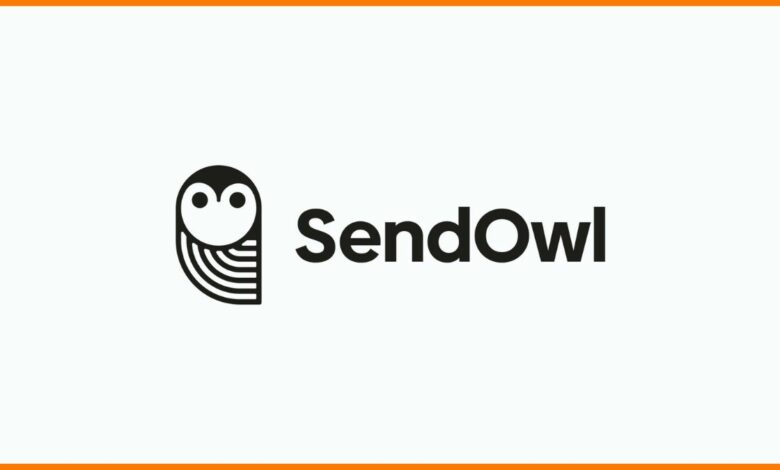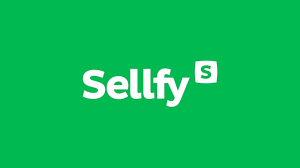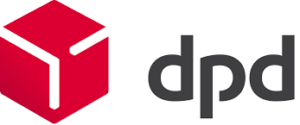Top 9 Best SendOwl Alternatives For 2023

Best And Official SendOwl Alternatives will be described in this article. Are you looking for a SendOwl substitute that will make selling your digital goods simple?
We have your back. Although SendOwl is an excellent tool, not everyone’s needs are best served by it. To determine whether a different ecommerce platform could be a better fit for your needs, it’s a good idea to look into several alternatives.
We’re reviewing the top SendOwl competitors in this article so you can get started selling digital goods right away. We’ll go through all of their features, costs, and any information you require.
Ready? Let’s get going:
Top 9 Best SendOwl Alternatives For 2023
In this article, you can know about Top 9 Best SendOwl Alternatives For 2023 here are the details below;
The best SendOwl substitute is Sellfy. Impressive features on a straightforward platform. Sell subscriptions, print-on-demand merchandise, physical goods, digital goods, and more.
If you’re a content developer looking for a “all-in-one” solution to selling online, Podia is the best option to SendOwl. Sell webinars, courses, and other things. includes client communication, email marketing, and affiliate marketing features.
- If having a quick checkout procedure is important to you, go with Payhip.
- Powerful cart solution, Lemon Squeezy, is excellent for selling software licenses and other things.
- DPD – Reliable SendOwl substitute that offers a wide variety of third-party connectors.
- Best for building whole e-commerce stores is Shopify.
- Gumroad is a straightforward SendOwl substitute, although it is unsupported.
- The best website builder with integrated e-commerce features is Squarespace Ecommerce.
- Another excellent platform for building complete online stores is BigCommerce.
1. Sellfy

If all you need is an easy way to sell digital goods online, Sellfy is the finest option to SendOwl. It’s ideal for newcomers who desire a quick setup of an internet store.
Regardless of whether you have programming skills or not, Sellfy enables anyone to start a store in a matter of minutes. Each page of the store can be customized. That implies that you can alter the layout, background color, and other page elements like the logo. And for branding considerations, you can connect your own domain.
The ability to add multiple goods to a shopping cart exists, allowing your consumers to do so. Additionally, you may turn on the Store Language option to translate pages into the language of your customers.
On Sellfy, you may sell digital goods. But it also has a print-on-demand feature that enables you to market t-shirts, mugs, stickers, and other items with your artwork on them. Printing and delivery of tangible goods will be handled by Sellfy on your behalf. You can use your storefront to sell your own tangible goods.
However, you are not restricted to selling digital goods. Additionally, you can provide yearly, biweekly, or monthly subscriptions. Additionally, you can provide videos on demand. Because of the security precautions in place by Sellfy, your consumers won’t abuse downloads.
Additionally, Sellfy offers digital marketing tools that are intended to advance your company. Through upselling, email marketing, and discount codes, you can advertise your products. Additionally, you may use CTA buttons to embed your business into your website and social media profiles. They can even be inserted into cards and end screens on YouTube.
Customers can use PayPal to make payments or you can integrate Stripe to accept credit card payments. Sellfy is PCI-DSS-ready, which guarantees that only reputable payment processors handle customer payment information.
The affordable price of Sellfy is arguably one of its best features. Paid plans begin as low as $19 per month.
Pricing: Starter (beginning at $19/month paid bi-annually), Business (beginning at $49/month billed bi-annually), and Premium (beginning at $99/month billed bi-annually) are the three tiers of pricing.
2. Podia

Podia excels at both the sale of digital goods as well as the sale of webinars and online courses.
Let’s start by talking about a few of its marketing attributes. Podia includes every tool you’ll need to create a mobile-responsive store from scratch, as you might anticipate. You can also design a huge variety of web sites. If a whole website is what you require, you can build one. Additionally, you can publish sign-up and sales pages.
Customizing pages doesn’t involve any programming. As you work on the pages, you may also preview them.
Podia’s affiliate marketing platform is one of its main benefits over some of its rivals. It gives your associates and clients the authority to start marketing your goods for you. It is simple to set up and personalize. You decide everything, including the commission rate. Additionally, you can decide whether your program will be invite-only or public. Podia can even assist with payouts by letting you know how much you owe certain parties.
Through signup forms, the Email Marketing tool enables you to collect email leads and broadcast emails to the full list. Additionally, you can develop email drip campaigns to assist prospective clients in moving through your sales funnel.
As was already said, you can sell a variety of digital goods. Ebooks, templates, presets, music, and audio files are all on the list. To dramatically raise your chances of making bigger money, you can also perform bundles.
Using the platform, it is also possible to sell webinars and online courses.
Although Podia doesn’t charge transaction fees, Stripe and PayPal’s processing fees must be paid. similar to every other platform.
Plans cost slightly more than some of the other options on this list. However, they do provide limitless access to all of their services, including file hosting, messaging, products, and clients. Additionally, there is free migration and 24-hour assistance available. For each team member you intend to add, however, you will need to pay additional fees.
Mover costs $39 per month, Shaker $79 per month, and Earthquaker $179 per month.
There is a free plan with transaction costs.
3. Payhip

Payhip promotes itself as an all-in-one solution and places a strong emphasis on speedy checkout. It states that clients can finish a transaction in a matter of seconds. It can mean the difference between making a sale and losing a consumer to have a complicated checkout process. In that case, Payhip might be the platform you’re looking for if it worries you.
You can sell subscriptions and downloads on this site. Users can purchase software, memberships, ebooks, and other digital goods.
Let’s discuss some of the ways Payhip facilitates checkout. The checkout page, for starters, is responsive, which means it functions on desktops, tablets, and phones. Additionally, Payhip asserts that their checkout pages are carefully calibrated to boost conversion.
Customers will have immediate access to their files after making payments. In addition, they will receive an email with the download link for the purchased item.
For a more seamless user experience, you may integrate the checkout and shopping cart into your own website.
Credit cards like Visa, Mastercard, American Express, Discover, and others can be used by users to make payments. If using PayPal is more convenient for them, they can do that as well. Because all transactions are secure, your consumers can shop with assurance. The fact that you are paid right away is the nicest part. Your PayPal or Stripe account will receive a direct payout of your money.
Additionally, there are built-in marketing tools. There is a framework in place for affiliate marketing. You may create mailing lists, social discounts, and coupons. You can alert customers about new items or promotions if necessary. Also check QuickBooks Alternatives
You can enable security features like download limitations and software licenses if you don’t want clients to download and reshare your digital products. Additionally, a PDF stamping feature is available, which prints the purchaser’s purchase information on each page of the product PDF. This will deter consumers from posting your products inadvertently on other websites.
Pricing: Pro ($99/month), Plus ($29/month), and Free
4. Lemon Squeezy

Another well-known website where you may offer digital files is Lemon Squeezy. It enables you to set up an online store where you may market all of your products, such as subscriptions and software licenses.
For the typical user, this e-commerce site claims to make things simple. Technical expertise won’t be necessary to launch an online store. To create a polished website, you won’t even need to pay a designer. Since everything is adjustable, it won’t be difficult to adapt it to your branding. Additionally, all pages are mobile-friendly and SSL-secured.
The fact that you can also sell software and apps here, though, is much more impressive. And with each purchase on this platform, license keys are provided. Of course, you can also market various kinds of digital goods, including ebooks, PDFs, movies, music, and pictures.
Additionally, you can start a membership site and earn money through subscriptions. Users have the option of subscribing for a week, month, or year.
Additionally, Lemon Squeezy has built-in marketing capabilities. Through email marketing, you may engage your audience in one-off or ongoing campaigns. Additionally, there are tools that let you add upsells or bundles to your products. Lead magnets can be made through gifts or giveaways. Using coupon codes, you can also provide discounts.
Use the Business Insights feature to monitor the effectiveness of your items. Additionally, Lemon Squeezy will take care of your tax compliance issues and invoicing. Everything you require to start your online store is there.
You may test out Lemon Squeezy’s all-in-one platform during its 14-day trial period to see if it’s appropriate for you. There are now two plans available, and a third is forthcoming. We should make clear that, in addition to the monthly or yearly membership, all plans have additional fees of 3.5% plus 30 cents per transaction.
Regardless of the plan you select, there are no restrictions on the number of items, clients, or storage space. However, the Basic plan forbids the sale of subscriptions.
Pricing: There is no monthly fee; instead, there is a transaction fee of 5% plus fifty cents every sale.
5. DPD

Digital Product Delivery is what the organization excels at, and that’s what its name stands for. You can sell digital goods like themes, ebooks, software, and graphics here.
The idea is fairly straightforward. To add CTA buttons to your website, blog, or social network accounts, all you have to do is upload your products to DPD. From there, customers may purchase your goods immediately. DPD will send the files to your consumers after payment.
You may now start selling digital things from anywhere thanks to this. DPD is compatible with desktop computers, Android, and iOS devices.
DPD is a fantastic SendOwl substitute thanks to a number of additional capabilities. It complies with PCI-DSS. Additionally, all checkouts employ SSL. Cardholder information is not saved by DPD. Its ability to enable you manage several stores from a single account is another positive aspect.
Moreover, DPD doesn’t impose additional fees for sales, bandwidth, or commissions. Depending on the plan you chose, you only pay a set rate.
The hosting and distribution of the products are also handled by this e-commerce service. The checkout procedure moves quickly and effectively. Software encryption and PDF stamping are additional options. Additionally, DPD may automatically notify your clients of product updates when you make changes to your digital items.
But DPD’s integration feature is what sets it apart. More than 500 sales and marketing products are integrated with DPD. This includes Google Analytics, ConvertKit, Zapier, CampaignMonitor, AWeber, GetResponse, ConstantContact, and MailChimp. Consequently, you’ll probably discover them here if your organization depends on third-party apps and services.
Three different plans are offered. And these are inexpensive when compared to the other SendOwl substitutes included on our list. The main drawback of these plans is that you are only allowed to upload a maximum of GB of product space. Additionally, the number of products you may list on the marketplace is restricted.
A plan can also be modified dependent on how much product space you require.
Pricing: $10 per month, $16 per month, $30 per month, and custom
6. Shopify

Shopify is a well-known ecommerce platform with all the tools you’ll require to launch and expand your company. Additionally, it provides 24/7 support in case you need help debugging problems or just want business advise. You can also engage Shopify specialists through a marketplace to assist with marketing, store setup, or even SEO.
This SendOwl substitute offers over 70 paid and free store theme options in a drag-and-drop website builder. Your website can easily be customized to reflect your branding. Additionally, all landing pages are responsive. Additionally, you may accept credit card payments using Shopify Payments without utilizing any third-party software or services.
The integrated analytics are also excellent for tracking your sales. You’ll be able to see your sales as well as gain a better understanding of what your audience wants. Additionally, the Shopify mobile app will allow you to manage your business while on the road. All of your pending orders, inventory, and other important data will be available to you.
Additionally, you may search for apps in the Shopify App Store to give your e-commerce site even more functionality.
Shopify supports more than 50 different languages. That implies that you can translate your landing page and checkout process to aid in converting users from foreign nations.
Simply unchecking the shipment checkbox on Shopify will show that you are solely selling digital products rather than physical ones.
Prices for Shopify Basic, Shopify, and Advanced are $39, $105, and $399, respectively. If you buy an annual subscription, you can save 25%.
7. Gumroad

Since it already has a built-in marketplace, Gumroad provides a reliable venue for artists to offer digital downloads. Therefore, customers who visit the marketplace in search of assets, books, audio files, apps, tutorials, or other digital items may stumble into your offerings.
However, you don’t have to rely on the market because you may develop a website and sell your goods there. Additionally, you may use the supplied marketing tools, such as coupon coupons, to advertise your works when you’re ready to sell. For video content, the Rental option allows you to rent out your product rather than sell it.
Additionally, there is a Pay What You Want model where you can let buyers to pay whatever you believe your product is worth. You can ask Gumroad to create license keys for you if you sell software.
Gumroad’s subscription business model is also intriguing. Customers may choose to pay on a monthly, quarterly, biennial, or annual basis. There are also fixed-length memberships, which are perfect for, say, selling a three-month course.
You may regulate the variants (such as having several shirt sizes), charge for delivery, limit products by nation, check addresses, and charge for the proper taxes if you decide you want to offer more than just digital goods.
Additionally, Gumroad has a built-in analytics tool that gives you access to information you can utilize to advance your company. Additionally, you may design automated workflows that let you send your consumers notifications, upsells, and other kinds of messages. Also check Pricing consultants
Due to the lack of plans, this platform’s pricing is different from that of the other SendOwl options. There are no ongoing costs. Instead, a portion of your sales are taken. Your lifetime revenue milestones will determine the proportion that Gumroad receives.
You open an account for free with a 9% Gumroad fee. Your charge decreases to 7% if you hit the $1,000 revenue threshold. The Gumroad fee will decrease as your revenue rises.
Pricing: 10% per transaction plus processing costs is the price.
8. Squarespace Ecommerce

Squarespace has established a reputation as a top website builder, particularly for business owners wishing to open their first online store. It offers the majority of the functionality you’ll need to get going right away and is quite simple to use.
The customer’s journey is greatly improved by it. Different kinds of digital content are available for sale. Subscription sales are another option. Additionally, it has integrated tax tools and flexible payment alternatives. By distributing gift cards or discount codes, you can advertise your products.
Any of the connected commerce technologies, including Apple Pay, Xero, Afterpay, ShipStation, FedEx, and UPS, are an option. Additionally, you may manage your business from any location with its mobile store management tool.
We haven’t even touched on Squarespace’s templates, which are its main selling point.
There are a ton of template options. Whatever business you’re in, you’re sure to find something that perfectly matches your brand. Additionally, your company will appear even more authentic given how contemporary, responsive, and professional looking their templates are.
Pricing: Basic ($26/month paid annually), Business ($18/month billed annually + 3% transaction fees), and Commerce ($40/month invoiced yearly).
9. BigCommerce

Another platform you may use to build a complete online store is BigCommerce. For bigger enterprises, it offers an enterprise solution, while for new and small businesses, it offers the Essentials plan.
BigCommerce provides more sophisticated features when compared to the other products on our list. You’ll be glad to know that this platform gives you access to an inventory system that keeps track of how many of your physical products you currently have on hand if you’re a seller of physical goods. A certain client segment can also be targeted utilizing special communications and offers.
In addition, it offers 65 different payment gateway choices, such as PayPal, Stripe, and Authorize.net. Additionally, there are choices for mobile and digital wallets.
When it comes to marketing, BigCommerce isn’t exactly a slouch either. The platform automatically generates sitemaps and provides you with SEO-friendly themes to work with. SEO-related components like URLs, meta tags, and header tags will be entirely under your control.
Additionally, it works well for social media product sales. With social media platforms like Facebook and Instagram, it integrates smoothly. BigCommerce can also be used to advertise on Google Shopping. And if you’d like to increase your chances of ranking on search engines even more, you may establish a blog.
Anyone can create an online store using BigCommerce’s drag-and-drop website builder without knowing any code. Additionally, you can manage transactions with ease because of policies like account creation for quicker checkouts and committed SSL support, which enables clients to remain on your site while their orders are being processed.
Even emails will be sent by this technology to users who have abandoned their shopping carts. Additionally, you can entice users with discounts and promotions.
Pricing: Monthly rates begin at $39 (annual subscriptions save 25%). Transaction costs are absent from all paid plans.
Final thoughts
This concludes our list of the top SendOwl substitutes.
While SendOwl is a fantastic alternative for selling digital files, you should always consider your other options. And one of these platforms might fit your needs better.
The greatest choice will ultimately rely on precisely what you want to sell. But make sure to take into account any future ambitions you might have for your shop. To avoid having to migrate later, it could be wise to pick a platform that has more features than you now require.
The good info is that the majority of these platforms are capable of supporting a range of digital goods. e-books, movies, music, and other things. Subscriptions, print-on-demand products, and tangible goods can be handled by others.
Check out our articles on digital product selling platforms or our overview of the top ecommerce platforms to build online stores for more information.



